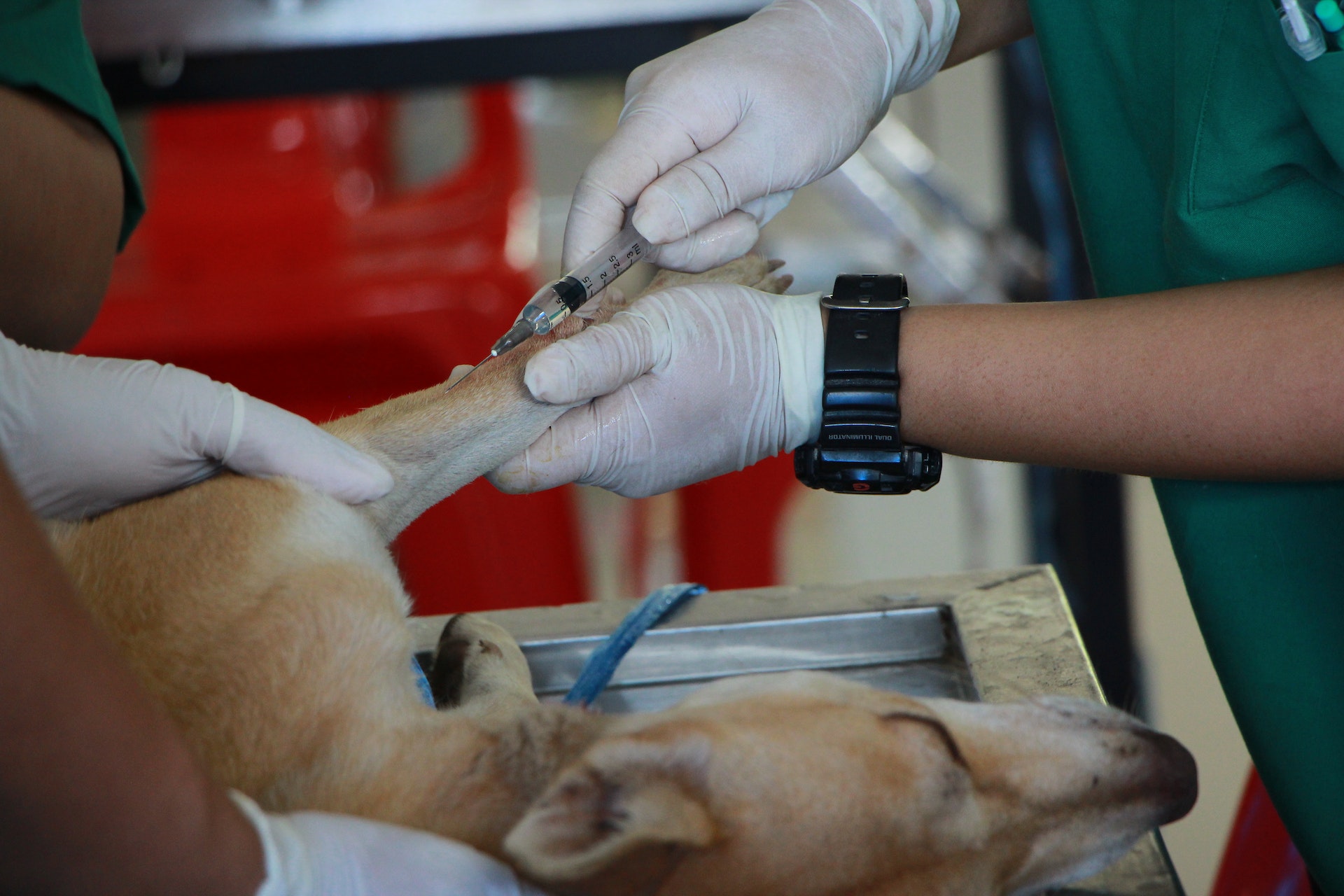This post may contain affiliate links. Please read our disclosure.
Are you wondering how do you treat bordetella in dogs? Is bordetella contagious? How do I know if my dog has a bordetella infection? We will answer these and other related questions about this canine infection in this post.
To start with, it is important to note that bordetella, which is also casually referred to as kennel cough, is a bacterial infection. This infection which is caused by a bacterium called Bordetella bronchiseptica affects a dog’s respiratory system.
It is a highly contagious infection amongst dogs and is easily spread via a dog’s respiratory secretions. When your dog comes into contact with a contaminated surface, it will catch this infection.
This bacterial infection can cause severe respiratory illness in dogs, and can even turn fatal if left unattended to. Any time you notice the symptoms of the Bordetella infection, you should take your canine to the vet the soonest possible.
In this post, we will look at the symptoms that you can easily notice when your dog is infected with this illness, discuss the causes of this infection, look at how it is diagnosed, and even discuss the prevention and treatment of Bordetella in dogs.
Article Contents
Symptoms of Bordetella in Dogs
How can you tell that your dog is suffering from bordetella? Are there some giveaway symptoms that will alert you on time to help save your dog? Below are some of the early-stage symptoms that will hint to you that you should rush your dog to the vet for a checkup:

Coughing
Is your canine friend coughing? A cough may be a good indication of a respiratory infection. When you notice your dog is wheezing and coughing, have it checked for Bordetella. However, be advised that coughing on its own does not mean your dog has Bordetella.
Sneezing
Most respiratory infections will bring about some sneezing. It is the feline’s way of trying to get the germs out of the respiratory tract. A sneeze combined with a cough is a sure way of knowing that your dog has an infection of the respiratory system.
Nasal discharge
Just like in humans, a dog will also get a nasal discharge if they have an infection of their airways. This is true for bordetella infections. The dog will produce some discharges that will drip off their noses.
Fever
If you have a thermometer, check your dog’s body temperature. A higher body temperature than normal will indicate that the dog’s body is fighting an infection.
Lethargy
Does your dog look extremely tired and slower than normal? Does it just want to stay in its bed/kennel and is unwilling to participate in any activity? This may be an indication of sickness.
If all the above symptoms show in your dog, please rush it to the vet the soonest possible. The dog might be suffering from a severe case of bordetella. These symptoms can occur a few days from the time of infection and may last for a few weeks.
Be advised that not all dogs show these symptoms. Some dogs do not show any symptoms at all, yet they can infect others. A bordetella infection can also lead to other more serious infections like pneumonia which can be life-threatening. Always be vigilant and attend to your dog at the earliest detection of any symptoms.
Causes of Bordetella

As mentioned earlier in this post, the kennel cough is caused by Bordetella bronchiseptica bacteria. This bacteria can be transmitted through toys, water bowls, bedding, and other contaminated objects and surfaces. It easily spreads through respiratory secretions.
When your dog comes into direct contact with an infected dog, or if they share common facilities, they are most likely to infect one another. As much as possible, ensure that any dog that seems infected is kept isolated until they heal.
Good hygiene should also be practiced if you want to keep your dog away from such infections. Wash your hands after handling other dogs, clean the dog’s kennel regularly, keep surfaces and dog utensils clean and disinfected, and avoid sharing your dog toys with other dogs.
Treating Bordetella in Dogs

Fortunately, a dog suffering from a bordetella infection can be treated effectively. All that is needed is some antibiotics and supportive care.
When you take your dog to the vet, it will be given an antibiotic that will kill the bordetella bacteria. This medication is given orally, or via an injection. The duration and type of antibiotic treatment will vary depending on how severe the dog’s infection is.
Besides the treatment, you should also ensure that your dog gets the supportive care that it needs. This means helping the dog manage the symptoms. You can, for instance, give it cough suppressants to help control coughing, fluids to prevent dehydration, and other medications to combat fever and discomfort.
Remember to strictly follow the prescribed treatment for the best possible outcome. Antibiotics should be administered on strict timelines to avoid the dog developing resistance to the drugs. A resistant dog may have recurrent infections which are hard to treat. So, always ensure the full dosage is administered as prescribed by the vet.
Finally, take steps to avoid spreading the infection to other dogs. Isolate your dog and practice good hygiene. Following these treatment and prevention steps will help keep your dog and other dogs around you from getting severely sick or spreading the infection.
Conclusion
All said Bordetella is a bacterial infection that affects the respiratory system of dogs. It is preventable and treatable. It is transmitted via respiratory secretions. You can prevent your dog from getting it by ensuring proper hygiene and isolating infected dogs.
The best way to treat a bordetella-infected dog is through a combination of antibiotics and supportive care. Seek medical treatment promptly and ensure you follow the prescribed treatment strictly. This is the surest way of treating Bordetella in dogs.
 Petnile Comprehensive Pet Care Guides
Petnile Comprehensive Pet Care Guides



